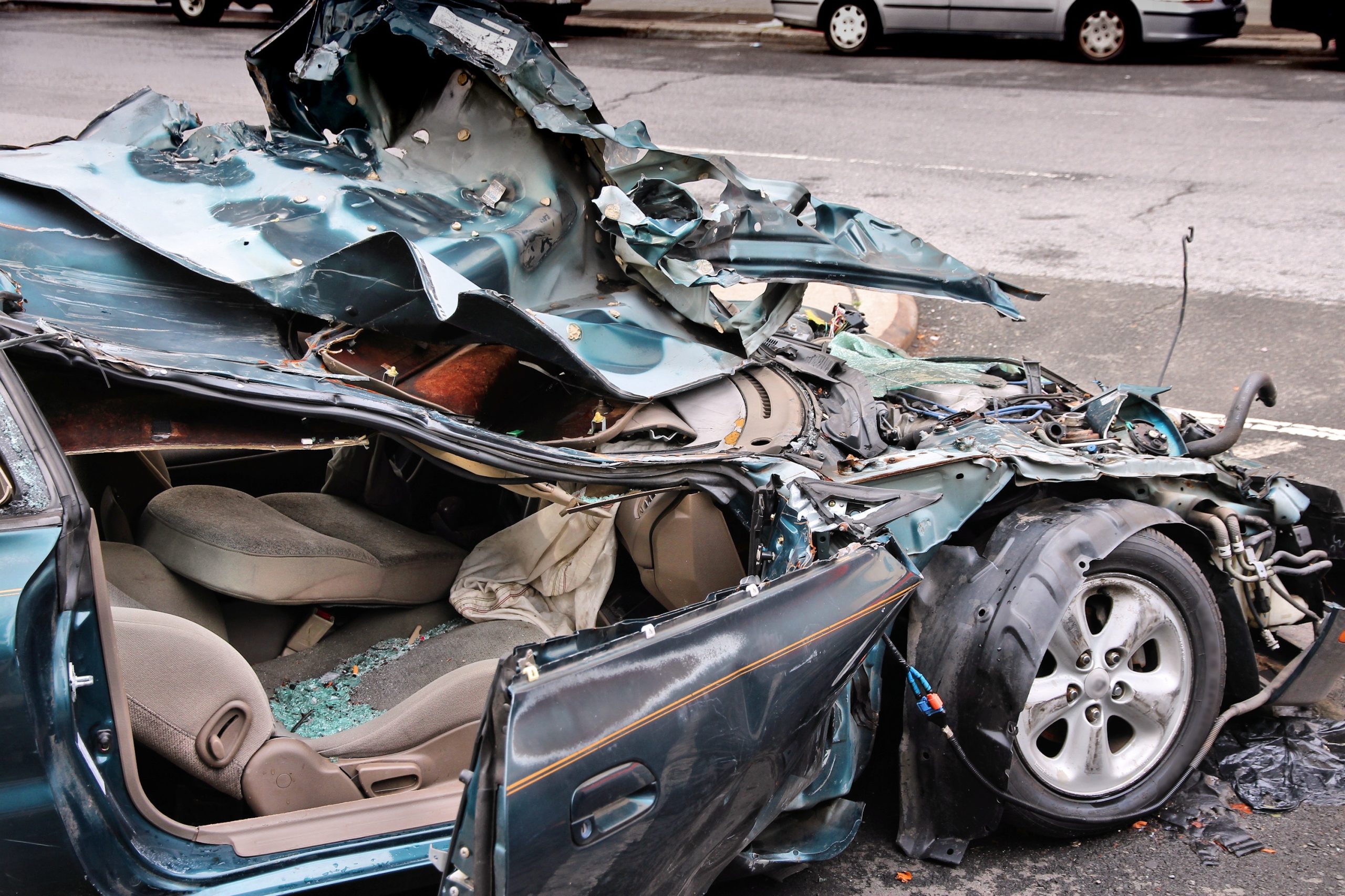Being involved in an automobile accident is always a distressing experience. Even if you were not injured, the crash could still lead to major inconvenience and expense. If the accident was so severe the insurance company says the cost of repair is deemed more than the cost of the vehicle itself, your car may be declared a “total loss.” If you do not agree with the insurer’s valuation of your vehicle or the settlement amount offered by the company, you need to understand how to fight the insurance company so you can obtain the compensation you deserve.
How Is the Value of a Total Loss Vehicle Calculated?
In the simplest terms, the total value of a totaled vehicle is calculated by subtracting the estimated repairs to the vehicle from its actual cash value, or market value. If the estimated repairs are greater than the market value, the vehicle is considered a total loss.
The Insurance Company’s Evaluation
A lot goes into the insurance company’s evaluation of a vehicle’s actual cash value before declaring it a total loss. The factors considered by the insurer include but may not be limited to:
- The severity of the damage. One of the most obvious considerations after a car accident is the severity of the damage sustained by the vehicle, which can range from mild and moderate to severe damage and total loss.
- The age of the vehicle. The age of the vehicle is also an important factor when considering the vehicle’s ACV, as certain replacement parts may be more difficult to find for older models.
- The brand and model. The brand and model of the vehicle can significantly affect its value.
- Mileage. Insurance companies take the vehicle’s mileage into account. As a rule of thumb, a vehicle loses on average around 20% of its current value for every 20,000 miles driven. However, there may be exceptions to this rule.
- Recoverable costs. Insurers also consider the vehicle’s salvage value after the accident, which means determining how much money the company could collect by either disposing of the vehicle or selling it at an auto auction.
These and other factors can be taken into consideration before declaring a vehicle a “total loss.” However, just because the insurance company thinks your vehicle is a total loss does not mean you have to agree with this assessment.
Do I Have To Accept an Insurer’s Settlement Offer on a Totaled Vehicle?
If you disagree with your insurance company’s settlement offer, you may be able to negotiate for a better settlement. Before you go this route, make sure you have supporting documentation, such as:
- A list of your car’s features.
- The estimated retail value from sources such as NADA.
- Comparable sales for vehicles of similar year, make and model in your area.
If your insurer rejects your counteroffer and you cannot come to an agreement, you can seek help from your state’s insurance department.
Challenging the Total Loss Decision
If you disagree with the insurance company’s valuation of your car, you may be able to challenge the insurer’s decision by taking the following steps:
- Determine how much your vehicle is worth. If you do not think your vehicle is a total loss or you simply do agree with the settlement amount offered by the insurance company, you should conduct an independent appraisal of your vehicle. The assessment of your vehicle’s ACV should consider various factors such as the severity of the damage, the age of the vehicle, mileage, and many more.
- Negotiate with the insurance company. Once you have strong evidence to challenge the insurance company’s assessment, you can initiate negotiations with the insurer to change its mind on the total loss declaration or increase the settlement offer. The more evidence you must show that the insurance company’s assessment is unreasonable, the higher the chance of success.
- Hire an attorney. If negotiating with the claims adjuster proves unsuccessful but you still feel you have a strong case, you could hire an attorney. Although likely a last resort, litigation could help you get the settlement you feel you deserve. It could also help to relieve some of the stress surrounding total loss negotiations. An attorney will be more familiar with the process. It is important to point out that there will typically be a cost associated with hiring an attorney, though. And there is no guarantee that you will win a new settlement even if you hire one. As such, it may be a good idea to ensure that the attorney’s fees will not outweigh the potential increase in your settlement amount if your insurance company agrees to a higher payout.
Covering Legal Costs
When dealing with a totaled car and taking insurance companies to court, it can sometimes be necessary to seek legal action. However, if the car was insured, the cost of legal fees may be covered by the insurance company. Before any legal action is taken, it is important to check the car insurance policy to make sure that legal fees are covered. If legal fees are indeed covered, the insurance company will sometimes pay for an attorney to represent the claimant. In other cases, the claimant will have to pay for the attorney themselves. The insurance company may partially or fully reimburse the claimant if the court case is successful. It is important to remember that the insurance company may reject a court case, in which case the claimant would have to pay all legal fees out of pocket. Another option available to those seeking legal assistance is to hire an attorney that specializes in dealing with insurance companies. These types of attorneys are often familiar with the processes and may be able to provide more effective representation than a general attorney. This can be especially helpful in cases when the insurance company is unwilling to negotiate or offers an unreasonable amount. Having legal representation when dealing with a totaled car can be invaluable, as it often helps to ensure that all claims are fairly evaluated and that the claimant receives the compensation they deserve. It is important to understand the costs and coverage of legal fees associated with your insurance policy so that you can make an informed decision.








